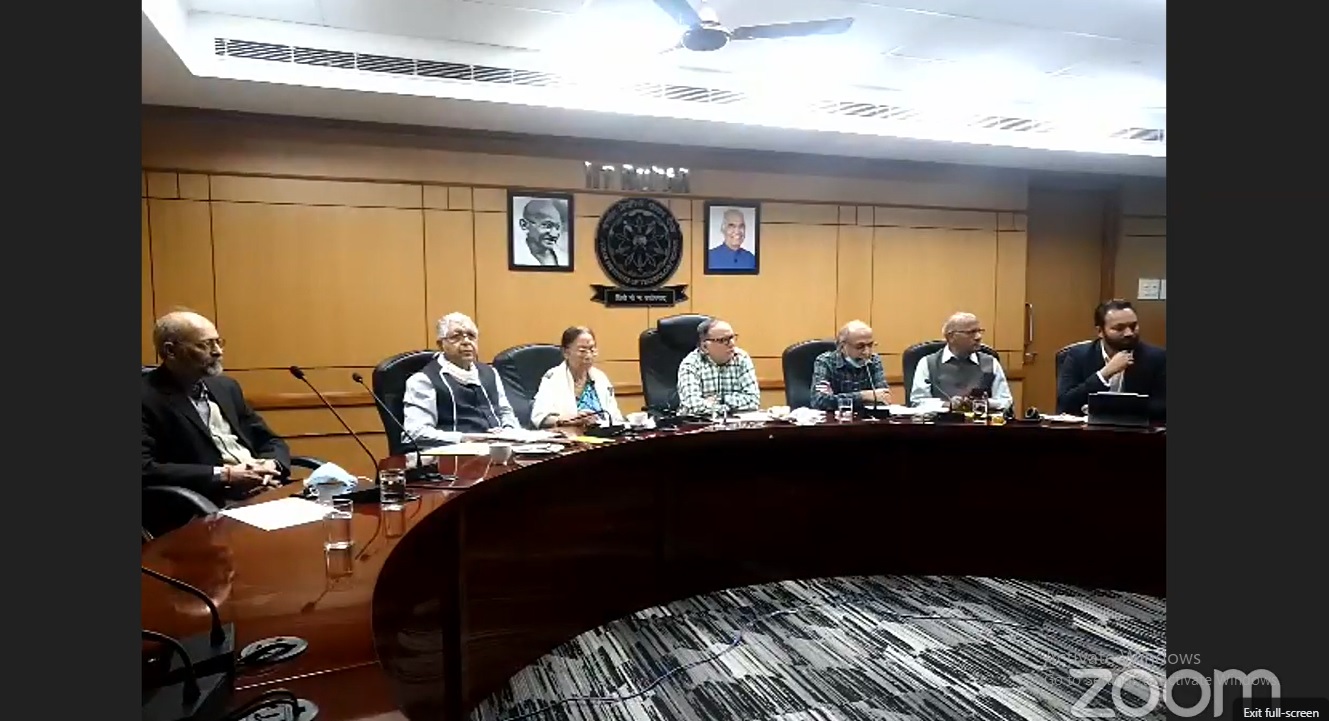IIT – A Heritage of India – Prof. Sanjay G. Dhande
Continuing with the series “Institution Building & Nurturing Initiatives in Independent India”, initiated to celebrate ‘Azadi ka Amrit Mahotsav’, the Society for Promotion of Science & Technology in India (SPSTI) presented a lecture (3rd in the series), “IIT- A Heritage of India”. The event was supported by Haryana State Council for Science, Innovation and Technology and was held in association with Chandigarh Chapters of National Academy of Sciences India (NASI), Indian National Young Academy of Sciences (INYAS) and Indian Institute of Technology (IIT), Ropar. The speaker a was former Director, Indian Institute of Technology, Kanpur, Prof. Sanjay G. Dhande, a very eminent science-technology academician of the country. Prof. Anantha Ramakrishna, Director, CSIO, Chandigarh, who introduced the speaker, has been a student as well as faculty member under the directorship of Prof. Dhande at IIT Kanpur. He counted the many ways in which Prof. Dhande, Padma Shri, has been adding value to technical education in the country – by preparing vision documents and charters for the Indian Institutes of Science for Education & Research (IISER) at Pune and Kolkata, by serving on many committees of Govt. Of India, by heading newly founded institutions and as member of the Scientific Advisory Council to the Prime Minister of India.
Shri Dharam Vir, IAS (Retd.), President, SPSTI, inhis opening remarks, opined that IITs have become a role model for adopting education practices in the system of higher education. IITs came up in 50’s and 60’s and NEP came in 2020 and it took 60-70 years for the country to come out with the new education policy aligned with the world practices. Prof. Arun K. Grover, former Vice Chancellor, Panjab University Chandigarh, presenting some historical notes, said that Thomason College of Civil Engineering, the precursor of the present IIT Roorkee, was the first technical college initiated by the East India Company in 1847, 100 years before the Indian Independence. This was exactly ten years before the Company created three universities at the presidencies of Calcutta, Madras and Bombay to affiliate the intermediate and the degree colleges in their respective domains.
Prof. Sanjay G. Dhande spoken on the establishment of Indian Institutes of Technology in India. He initiated with the evolution of technology, development of Indian Railway system, dams on rivers, road network, ports and mines in British India. During the Second World War, there was rapid rise of arms and ammunition factories and a big paucity of trained manufacturing engineers and manpower in metallurgical engineering. He quoted the Sarkar Committee Report that specified the need of four institutes on the line of MIT USA, one each in east, west, north and south of India.
Prof. Dhande discussed early struggles of IITs with paucity of quality faculty. He emphasized that science–based engineering was the major contribution of IITs to the Indian technology system. He said the Central Government started expanding its wings in Nuclear, Space and Defense areas. The Department of Atomic Energy was established at the same time when IIT Kharagpur was set-up. The role of IITs was hence compromised and cornered in some sense and the research funding was shared among other state and central institutions. He also discussed many details about student and faculty development in IITs. He expressed the concern about the infrastructure and facilities for a digital transformation after COVID. While concluding, he talked about the future of IITs and the need to look for a seat in international arena, handling freedom with responsibility, and following ethics to re-invent themselves.
Prof. Rajeev Ahuja, Director, IIT Ropar, as Guest of Honour emphasized on the strong need of collaborative approach and focus on innovations in an institute. He also emphasized on promoting the culture of free research driven by curiosity.
Other dignitaries present were Dr. Pushpendra Singh, Dean Research and Prof. K. K. Raina from IIT Ropar in addition to Er. M.L. Garg , Treasurer and Prof. Keya Dharamvir, General Secretary, both from SPSTI.

